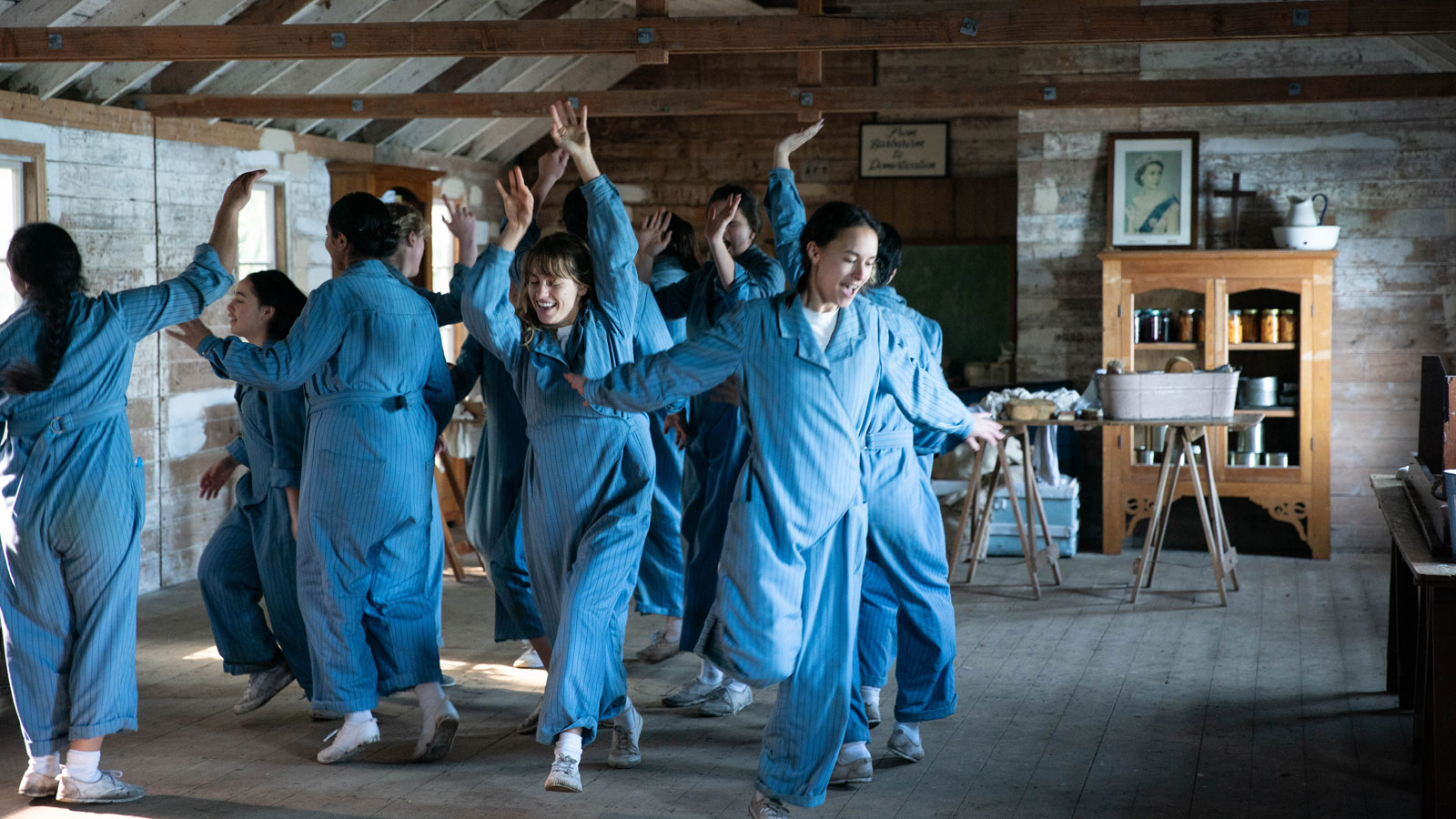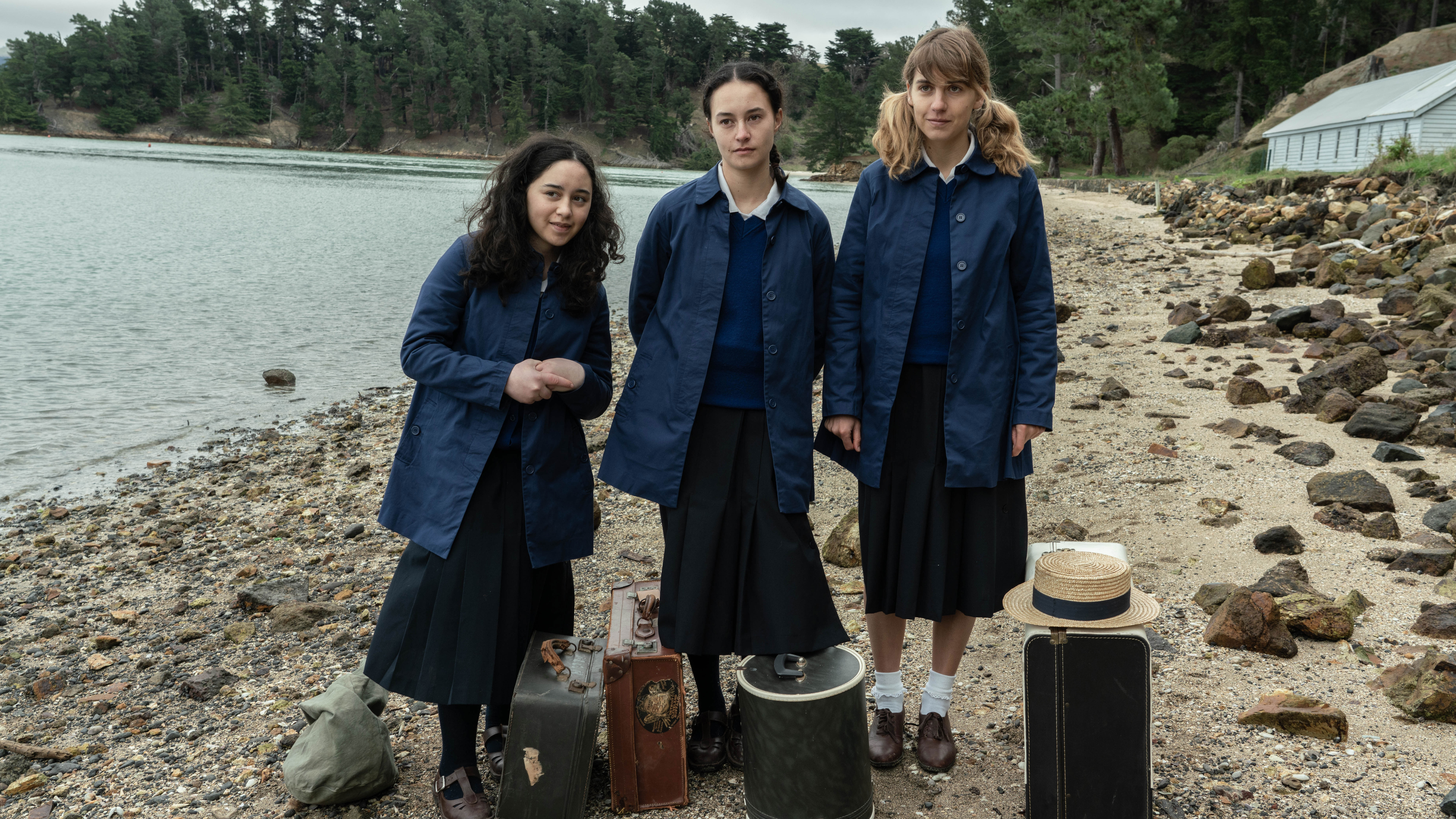An Enduring Flame: Josephine Stewart-Te Whiu on We Were Dangerous

Critics Campus 2024 participant Alice Bellette speaks to director Josephine Stewart-Te Whiu about her fictionalised representation of the harrowing, defiant and even joyful experiences of girls in New Zealand state care institutions in the mid 20th century.
“It’s such a great image,” Josephine Stewart-Te Whiu says, recounting a vignette told to her by state care survivor Leonie McInroe: “She said they would burn their menstrual products in a giant incinerator, and as they were burning they would all stand around and light their cigarettes off the flames. There’s something so rebellious about it; it’s a ‘fuck you’ to the whole system, to everything.”
A long-time justice campaigner for those who endured brutal systems of institutionalisation in Aotearoa New Zealand throughout the 20th century, McInroe came on board as a consultant for We Were Dangerous during pre-production. Directed by Stewart-Te Whiu and set in 1954, the film is an intentionally satirical period piece that shines a light on the hidden histories of state care institutions during that era. It follows Māori teenagers Nellie (Erana James) and Daisy (Manaia Hall), attendees of an institution for ‘delinquent’ girls. After a failed attempt to bust out one night, the institution is relocated to an isolated island. There, under the watchful eye of the school’s matron (Rima Te Wiata), the girls continue their tutelage on domesticity and the Bible, now joined by new pakeha student Lou (Nathalie Morris).
While survivor lived experience forms part of the director’s own story – her father was placed in the state care school system as a child, and its ripple is still felt in her own life as she continues her journey to reconnect to community and culture – she is quick to emphasise that this is not a historical biopic, even if the period setting might lead audiences to assume otherwise: “The language is very contemporary, and that’s a very deliberate choice … to make it obvious that we are throwing a very contemporary lens on the themes.”
While there was no documentation or recorded evidence of sterilisation in state care schools, the film makes a point in a shot that rests on a pamphlet on the matron’s desk. A real-life historical document published in 1903, The Fertility of the Unfit is a treatise on the case for eugenics authored by white settler politician and – disturbingly – medical practitioner William Allan Chapple. For We Were Dangerous, Stewart-Te Whiu says that she and writer Maddie Dai approached this material as a ‘what if’ exercise: what might have occurred had the document, or something like it, been adopted into the legal framework.

We Were Dangerous
Incidentally, the findings of the Royal Commission of Inquiry into Historical Abuse in State Care and in the Care of Faith-based Institutions 2018 – titled Whanaketia, meaning “through pain and trauma, from darkness to light” – were released just as We Were Dangerous was embarking on the local festival circuit. McInroe had crucial input in shaping the finer contours of the script and the characters on screen in a way that was true to her experience, especially as a survivor of the infamous Lake Alice Child and Adolescent Unit in the 1970s. “She came and talked with us ... a lot about the friendships and the relationships that were formed in those environments, and how they were never talked about,” Stewart Te-Whiu recalls.
We Were Dangerous does an admirable job of striking a balance between the darkness of dehumanising colonial histories and the joy of the girlhood friendships found inside these institutional settings. Stewart-Te Whiu mentions that it took a year of editing to find that equilibrium; the tone needed to be just right to avoid either trivialising lived experiences or coming across as heavy-handed. Humour was a key ingredient in particular, the director says, describing it as “such a beautiful tool, because it’s really accessible and it invites people in”. Through its use of humour, the film resists becoming another tired rehashing of Indigenous trauma, while at the same time building trust with the audience in order to be able to address heavier subject matter.
This delicate attention to detail is especially evident during the elating scene halfway through the film in which Daisy leads a pūkana game. It was initially captured on an iPhone during a spontaneous moment between takes when the young cast members were playing the game to stay warm in the cold morning air. Realising that the scene needed a place in the film, Stewart-Te Whiu brought intuition and reflexivity – skills garnered from cutting her teeth in theatre – to the production’s scheduling in order to accommodate this unscripted addition. While it may not be a cigarette lit on an incinerator flame, the pūkana game presents its own ‘fuck you’ to the system, and serves as a way for the girls to keep their culture alive.
“If you were fluent in te reo you would know this, but they’re not speaking proper Māori; it’s almost like pidgin English,” Stewart-Te Whiu notes. It was an occasion when something true-to-life trickled into the fictional story; by sharing in small acts of resistance, the girls preserve the memory of what their language feels like in whatever stolen moments of togetherness can be found. As the director explains, “The whole idea is that, even though what they’re singing … doesn’t translate to anything, really, they’re holding on to whatever little bit of their culture they can.”